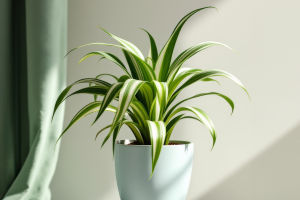Have you ever noticed how the scent of lavender instantly makes you feel more relaxed?
Lavender, known for its beautiful purple flowers and refreshing aroma, has been cherished for centuries for its calming and therapeutic properties.
In this article, we'll explore the science behind lavender's calming effects, its aromatic benefits, and practical ways to incorporate it into your daily life to promote relaxation and well-being.
What Is Lavender?
Lavender is a flowering plant belonging to the mint family. Its essential oils are extracted from the flowers and have been used in traditional medicine, perfumery, and aromatherapy. The main active compounds in lavender oil, such as linalool and linalyl acetate, are responsible for its characteristic fragrance and soothing effects.
Lavender's Calming Effects on the Mind
Research has shown that inhaling lavender aroma can influence the nervous system by lowering heart rate and blood pressure, which helps reduce stress and anxiety. The scent stimulates the limbic system, the brain area involved in emotion regulation. This natural effect makes lavender popular for managing mild anxiety, improving sleep quality, and alleviating tension.
Aromatherapy: How Lavender Works
Aromatherapy uses plant extracts and essential oils for health and mood benefits. Lavender oil is one of the most studied and widely used essential oils in this practice. When diffused in a room or applied topically in diluted form, lavender's aroma activates receptors in the nose that send calming signals to the brain.
Many people use lavender aromatherapy to create a peaceful atmosphere for meditation, relaxation, or before bedtime.
Lavender for Sleep Improvement
Insomnia and restless nights are common issues affecting many people. Lavender has been found to improve sleep quality by promoting relaxation and reducing wakefulness. Several clinical trials report that patients exposed to lavender scent fall asleep faster and experience deeper sleep cycles. This natural remedy offers a gentle alternative to pharmaceutical sleep aids without the risk of dependence or side effects.
Practical Ways to Use Lavender
Incorporating lavender into your routine is easy. You can use dried lavender flowers in sachets placed under pillows, apply diluted lavender oil to your wrists or temples, or add a few drops to a warm bath. Additionally, lavender-infused products such as candles, lotions, and sprays provide convenient options for enjoying its calming effects throughout the day.
Scientific Support and Expert Insights
Numerous studies back up lavender's therapeutic potential. For instance, a review in the Evidence-Based Complementary and Alternative Medicine journal confirms lavender's effectiveness in reducing anxiety and improving mood. Aromatherapists recommend lavender for stress management, highlighting its safety and pleasant aroma as key benefits. Nonetheless, experts advise consulting healthcare professionals before using lavender for medical conditions, especially if pregnant or allergic.
Precautions When Using Lavender
Lavender is generally safe, but some people might experience allergic reactions or skin irritation when using essential oils directly on the skin. It is essential to dilute lavender oil with carrier oils like coconut or almond oil before topical application. Avoid ingestion unless under professional supervision. Children and pregnant women should use lavender products cautiously and seek medical advice.
Engage with Lavender's Natural Calm
Have you tried using lavender for relaxation or better sleep? What methods worked best for you? Sharing your experience helps others discover the benefits of this wonderful herb. Whether you prefer diffusing its scent or using it in skincare, lavender offers a natural, gentle way to support your mental well-being and create calm in your daily life.


